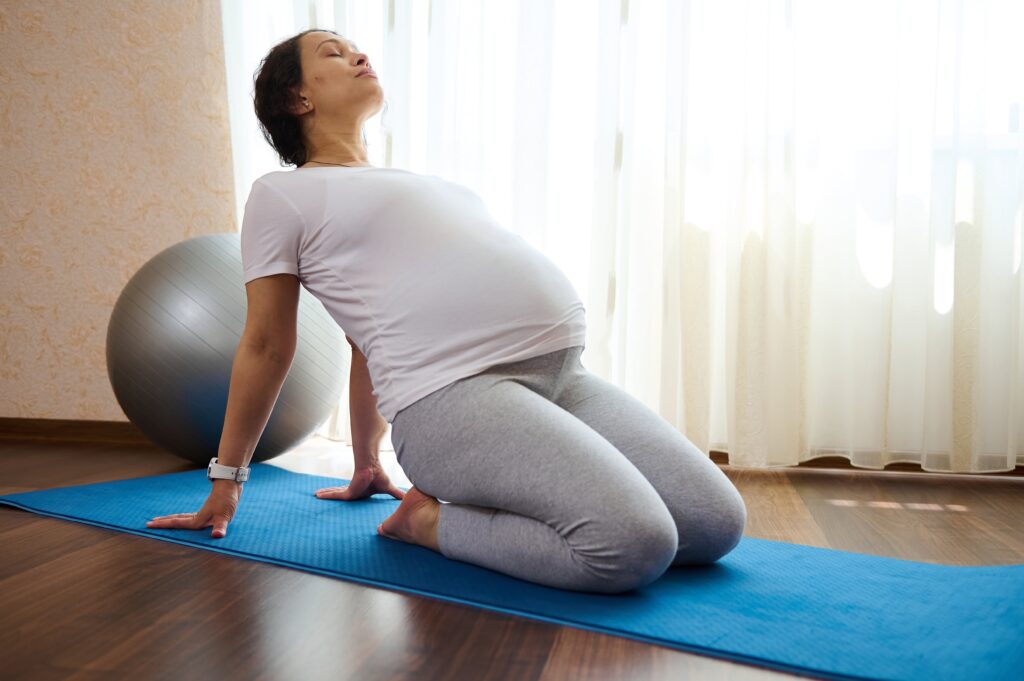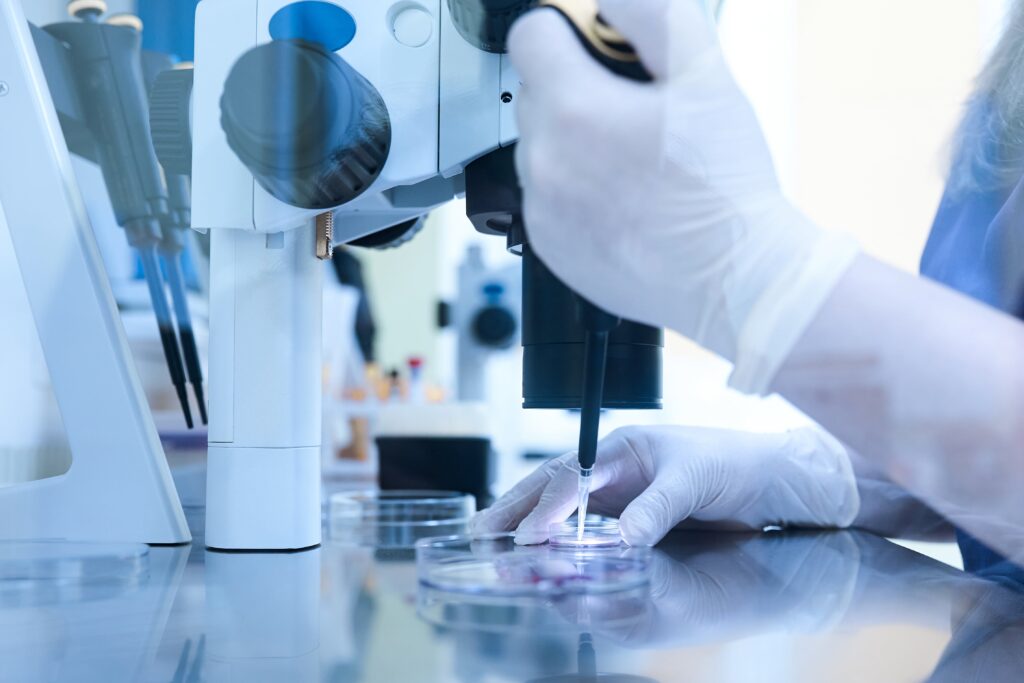The path to parenthood can be exciting, emotional, and sometimes overwhelming, especially when you are navigating questions about fertility and women’s health. This guide walks you through early signs of infertility, pre‑pregnancy checks, treatment options like IUI and IVF, and holistic ways to support your body and mind with insights you need to enhance your chances of conception. So you can move forward with more clarity and confidence.
Navigating your fertility journey

Get ready for one of the most exciting, rewarding, and nerve-wracking experiences of your life! The path to pregnancy is a little like having a baby – you never quite know what to expect or when to expect it, so the best advice is to be as prepared as you can and still be open to whatever happens.
That’s why it’s essential to have the best information and support at your fingertips, so you can ride the bumps along the way and enjoy your fertility journey. Our Thrive guide will explain just what you need to know and connect you with resources and information for each and every step of the journey.
First off, it’s a good idea to gain knowledge about fertility – how does your reproductive cycle work? How do you know when to seek help? What’s “normal” and what’s not? Who do you approach with questions? Your General Practitioner (GP) or fertility specialist?
And how do you discuss issues with your partner? What support networks do you need to have in place, and what should you do mentally and physically to prepare?
Thrive reproductive nurse and fertility expert, Marie Otsuka, says: “Time is the greatest enemy in infertility.” She explains our most fertile years are around 25 to the early thirties, which is often the time we are busy forging our careers and finding a partner. As we get older, our chances of a successful conception do diminish, so keep this in mind. You may want to explore freezing your eggs if you are not ready to start a family at this stage of your life. Marie also emphasises the value of staying positive and excited about the journey.
Pre-pregnancy health check
Before you start, make sure you have a GP you can see easily and have a good rapport with. Do a pre-pregnancy check – scroll down for more on this!

Map your menstrual cycle – keep a diary so you know where you are in your cycle. The average menstrual cycle is 28 days, and for most women, they are likely to ovulate (when the egg is released from the ovaries) around Day 14. So, your best chances of falling pregnant are the day before, during, and the day after ovulating. This gives you what is commonly referred to as your fertility window.
Get to know your cycle – write down physical and emotional symptoms associated with each day. This is a helpful way to check in and manage stress, mental well-being, and physical issues.
Discover your genetics – if you can, chat to your mum and the women in your family. What experience did they have when trying for a baby? What were their pregnancies like? Not only is this a great chance to connect, but it can also lead to some valuable information.For more information about when to seek specialist care, you can also read our blog on when to see a gynaecologist.
Stress reduction and emotional support
Create a self-care routine – prioritise your mental health. Make sure you have good support in place. This could be finding a counsellor or psychologist to help you cope with the highs and lows of fertility, pregnancy, birth and parenthood. It is also advised to have a movement-based practice in place, such as yoga and or Qi Gong, to help keep your mind and body in balance. In the Thrive program, there are some fabulous pre-recorded routines and guided relaxations as well as live online classes.

Sarah Manning has more than 30 years of experience in women’s health and wellness through yoga and is one of the Thrive yoga and Qi Gong teachers. Sarah says: “The fertility journey can be brutal, both physically, emotionally, and mentally, and my mission is to help you ride the obstacles and help you come up with calm, steady, centered practices.”
There are pre-recorded classes which are tailored specifically to your menstrual cycle and your Ayurvedic Dosha, making sure your practice suits you at each and every stage. There are also live online classes, so you have an opportunity to connect directly with your teacher and with other women on a similar journey.
Maintain a healthy relationship – keep the lines of communication open between you and your partner. Make sure you both feel heard and make time for one another. It could be just a set time every evening to chat with one another – this will plant the seed for healthy communication into parenthood. Marie advises you to attend appointments together, so you support one another.
Recognising Infertility: Early signs and when to consult a specialist
According to the World Health Organisation (WHO), 1 in 6 people globally experience infertility.
- Red flags for infertility can include irregular or painful periods, hormonal imbalance, and issues such as polycystic ovary syndrome and endometriosis. Get these checked out. While men could have a low sperm count or coital issues (sexual dysfunction), such as erectile dysfunction and premature ejaculation
- Lifestyle factors, depression, anxiety, and stress can also lead to fertility issues.
Marie suggests reaching out to see a fertility specialist if you are below the age of 35 and have been actively trying for a baby for a year or over 35 and trying for six months.
For more information about its importance and when to seek help, please read our blog on when to see a gynaecologist.
Fertility screening and pre-pregnancy check-ups
Even though they may sound similar, these two checks are pretty different. A pre-pregnancy screening is done at the first stage of starting a family to ensure your best chance of success. A fertility screen is done to check possible causes of infertility. To find out more, check out our Thrive blog
A pre-pregnancy check with a GP is a great idea to maximise your chances of conception. Tell them you plan to conceive and make sure your general health checks are up-to-date, particularly your Pap smear, and discuss any history of menstrual issues, past surgery, and lifestyle. Some GPs may do a blood test to check hormone levels Your partner should also go to the GP to check their general and sexual health.
A fertility screening is done by a reproductive specialist who will run tests to check for possible causes of infertility this usually includes a hormonal blood tests (taking a note of hormones such as FSH, E2, LH and prolactin, Anti- Mullerian Hormone level (AMH), as well as a pelvic ultrasound to check egg quality, ovaries, fallopian tube and uterus if there is any abnormality. They will discuss past reproductive history, pelvic and abdominal surgery and lifestyle.
Exploring fertility treatment options: from lifestyle changes to advanced procedures
Our lifestyle has a huge impact on our overall health, and generally, the healthier you are, the higher your chances of conception.
- Sleep: “A big red flag in wellness is the quality of your sleep,” says our yoga expert, Sarah. She adds that it is the hours before midnight that give you the best quality of sleep. Quality sleep helps regulate progesterone and cortisol, hormones that are critical for fertility and emotional balance.It’s also important to reduce caffeine – avoiding caffeinated drinks after 3 pm, creating a healthy sleep hygiene routine where you go to bed and wake up at the same time each day, and avoiding screen time at least an hour before bed.
- Stay hydrated! Our cells love to feel hydrated, supporting your hormone regulation and egg health. So aim to drink around 2 litres of water a day (about 6-8 glasses) and sip, rather than gulp water. Don’t be tempted to substitute your H2O for sodas – instead, jazz up your water with mint leaves or slices of fruit like mint, orange or strawberry for a refreshing boost.
- Diet and nutrition: make sure you are eating a balanced diet rich in wholegrains, fruit, and vegetables, and protein such as fish and healthy fats such as nuts and avocados. And avoid junk, sugary, and highly processed foods. The food choices you make can balance hormones, even improve the quality of your eggs and support healthy ovulation.
- Movement: sedentary lifestyles where we sit at an office desk all day and then sit on the sofa at night can lead to stagnation, so make sure you are moving regularly. Get up every half hour or so, to stroll around the office or do a few simple stretches to keep that flow of energy (qi) moving through the body.
- Relationship : make sure you and your partner are rock solid at the outset of this journey. You may even want to book to see a relationship counsellor to ensure there are no underlying issues, as tiny cracks in your relationship can open up as you face the demands of parenthood. You both need to be there to support one another, as IVF is difficult for both you and your partner. Couples yoga can be an amazing and fun way to strengthen your relationship through mindful movement.
Stress reduction and emotional support
In our modern, busy life we are bombarded with stressful situations, deadlines and general overwhelm. Knowing how to reduce and manage stress is key when beginning your fertility journey.This is especially important for fertility, because of the hormone pregnenolone, which helps make other hormones, including progesterone, estrogen and cortisol. Research shows psychological stress can disrupt ovarian function and reduce ovarian reserve, including fewer eggs and lower Anti-Müllerian Hormone (AMH) levels. These effects are often more pronounced in younger women and those from minority or lower-income backgrounds, highlighting how stress impacts not just mental wellbeing but also reproductive health.
Stress significantly impacts your hormonal balance, progesterone is one of the main hormones we need in pregnancy as it helps to build and maintain the womb lining, regulates our menstrual cycle and helps keep us calm. But when we are stressed, pregnenolone switches to manufacturing more cortisol at the expense of progesterone, which means our cortisol levels rise and our progesterone levels drop – this is sometimes referred to as the pregnenolone steal. There are several natural ways to regulate your hormones for better fertility and mental health during this time, some include:
Keep a diary and recognise what sends you into high alert and triggers your stress response. It could be the yapping dog next door or a looming deadline. Whatever it is, put barriers in place and use stress management techniques. This could be emotional regulation techniques such as deep breathing practices or doing a short meditation, booking a regular massage or taking time out in nature.
Having a regular restorative or yin yoga, Qi Gong, or meditation practice can also help. These practices help to regulate your nervous system and bring you out of that fight-or-flight response of the sympathetic nervous system, into the parasympathetic nervous system, where blood flow is directed to the internal organs, and you feel calm and balanced. This is known as rest, digest, and nest (as it aids our fertility).
Being aware of the breath is key, as our breath is the best way to have an immediate effect on rebalancing hormones. That’s why yoga and Qi gong are recommended, as the breath is a key component of these practices.
Exploring fertility treatment options: from lifestyle changes to advanced procedures
Other lifestyle changes, such as quitting smoking and reducing alcohol consumption which can also impact success rates of fertility treatments, can also help. For more tips on improving egg and sperm quality, check out our article on suggestions to enhance egg quality.

Once lifestyle factors and physical issues such as endometriosis, polyps, or fibroids have been addressed, then you may choose to look at fertility treatments.
The first step, says Marie, is likely to be a timed intercourse with ovulation induction – this treatment uses medication, either orally or as an injection, to stimulate egg growth. This is given on Day two of the menstrual cycle, and around Day 10, you will receive a trigger shot to increase the chance of a successful conception. Then, it is a case of ensuring you are having intercourse during your fertility window, usually 36 hours after the trigger shot.
If this isn’t successful after a few rounds, you may wish to consider In-Vitro Fertilisation (IVF).
IUI or IVF: How to choose the best fertility path for you
Intrauterine Insemination (IUI) places the sperm directly into the uterus, close to the fallopian tube, to increase the chances of conception. This can be done in a clinic without sedation and is less invasive than In Vitro Fertilisation (IVF), which is a far more complex procedure that involves several steps to help stimulate egg production, lab fertilisation, and transfer.
Generally, IVF is considered only after all other fertility treatment options have been explored. However, have you truly considered all your alternatives? Before you proceed with IVF, it may be worthwhile to explore intrauterine insemination (IUI) as a possible option. Discover why IUI could be an excellent alternative for you.
Understanding IVF: process, success rates, and what to expect.
The IVF journey is a challenging one, and, as Marie says, “The chances of success are around 50/50.” But with that said, her advice is to always have hope and try not to feel pressured.
It’s also important to have fertility counselling and continue to live your life. “Go on holidays, have fun, enjoy yourself – do something you love that refreshes you both,” urges Marie. She suggests slowing down the pace of your life during the constant visits to the clinic, and doing regular meditations and guided relaxations.
IVF is a complex medical procedure that involves the woman undergoing hormone injections, egg retrieval, and then the eggs are inseminated with the man’s sperm in the lab, and if an embryo is successful, this is then placed back into the womb a few days later. And then you have to wait to see if it has been successful.
Holistic approaches to boost fertility and well-being
Making healthy, balanced lifestyle changes, as mentioned above, is important, but other natural approaches include alternative health, such as homeopathy, reflexology, acupuncture, and herbal medicine.

These modalities can help promote fertility by balancing hormone levels, reducing stress, and boosting energy flow through the body. This can help to improve egg and sperm production as well as optimise the reproductive system.
Always make sure you see someone who is qualified and comes highly recommended. Plus, check out the fabulous range of videos in the Roundtables section of the Thrive Journey website, which features interviews with practitioners as well as tips and advice on holistic wellness.
Post IVF care and recovery: wellness after treatment
Following IVF, it’s important to return to hormonal equilibrium. The hormonal rollercoaster, as well as the emotional upheaval of this journey, is huge.
Thrive yoga teacher, Sarah Manning, says: “As a yoga teacher, I want the body to be as healthy as it can be and taking a break – ideally around three months following an IVF cycle – is important, as this is the time it takes for an egg to mature before it is fully released.”
She adds, “If you keep doing the same thing, then you are likely to get the same outcome. So, this pause gives you the chance to optimise your chances of success and improve the vitality and energy of your system.”
Prioritising women’s health – beyond fertility
Sarah echoes the saying: “Every woman should prioritise her wellness, otherwise illness will force her to do it.”
Make the health and lifestyle habits you create for fertility part of your lifelong journey – this will give you the best chance to have optimum energy levels and reduce the risk of disease and injury, as well as support you to be the best parent and role model that you can be.
Supporting hormonal regulation is essential not only for fertility but for women’s health and wellbeing as a whole. Embracing a holistic approach to wellness ensures that you thrive in all aspects of life, fostering resilience and vitality that benefit both you
Empowering your holistic fertility journey
Gather the professionals you trust and have resources on hand to support you and your health and well-being.
When you are short of time and under pressure, having a support network that will give you value for money and not waste your time is essential. Thrive is here to support you on your fertility journey. We ensure you receive the value you deserve without wasting your precious time. When you’re ready to learn more, don’t hesitate to get in touch with us.
FAQ – Fertility & Women’s Health
What are early signs of infertility in women?
Early signs can include irregular or very painful periods, known conditions such as PCOS or endometriosis, difficulty ovulating regularly, or trying to conceive for 12 months under 35 (6 months over 35) without success.
How much does stress really affect fertility?
Chronic stress can shift hormone production towards cortisol and away from hormones like progesterone, which may affect ovulation, uterine lining, and sleep, all of which play a role in fertility.
What is the difference between a pre‑pregnancy check and a fertility screen
A pre‑pregnancy check focuses on general health and preparing your body for pregnancy, while a fertility screen looks specifically for causes of infertility through hormone tests, scans, and sometimes semen analysis.
Should I try IUI before IVF?
Many couples explore IUI first because it is less invasive and more affordable than IVF, but the right choice depends on your age, diagnosis, and how long you have been trying, so it is best to discuss this with your fertility specialist.
Can holistic therapies like yoga really help with fertility?
While they do not replace medical treatment, practices such as yoga, qigong, acupuncture, and stress‑reduction techniques can support hormone balance, emotional wellbeing, and blood flow, which may complement other fertility care.
